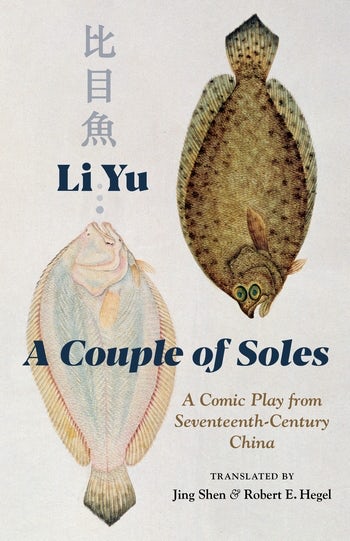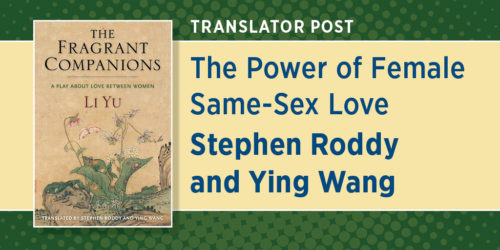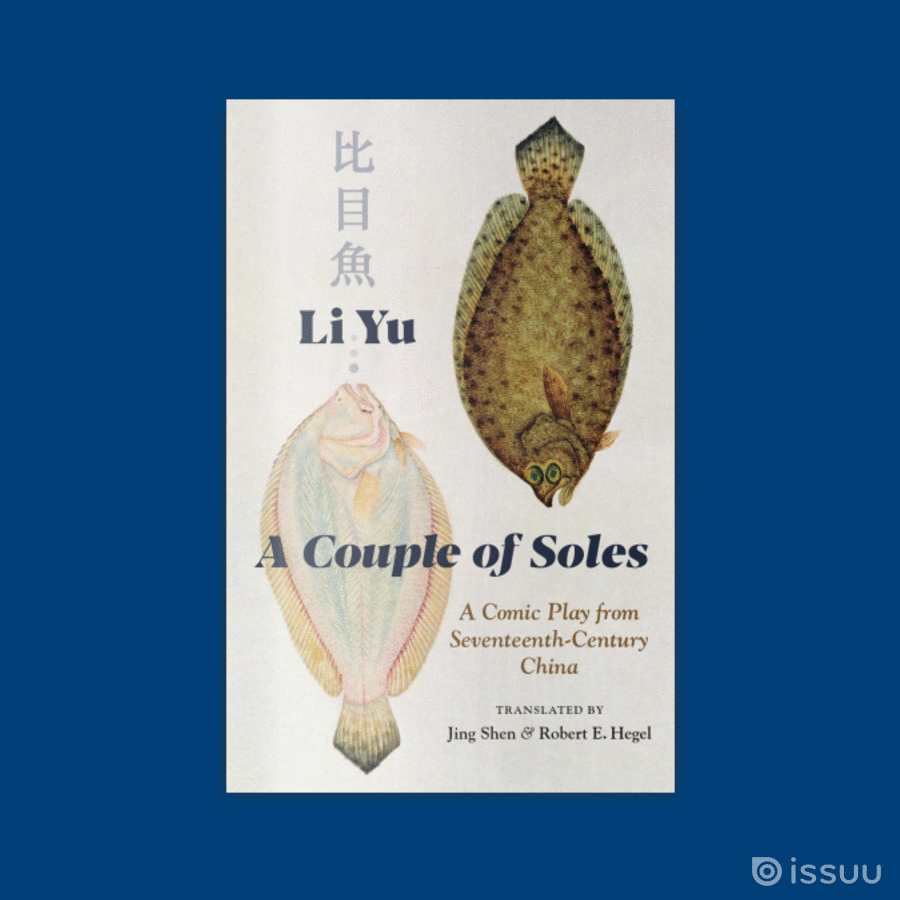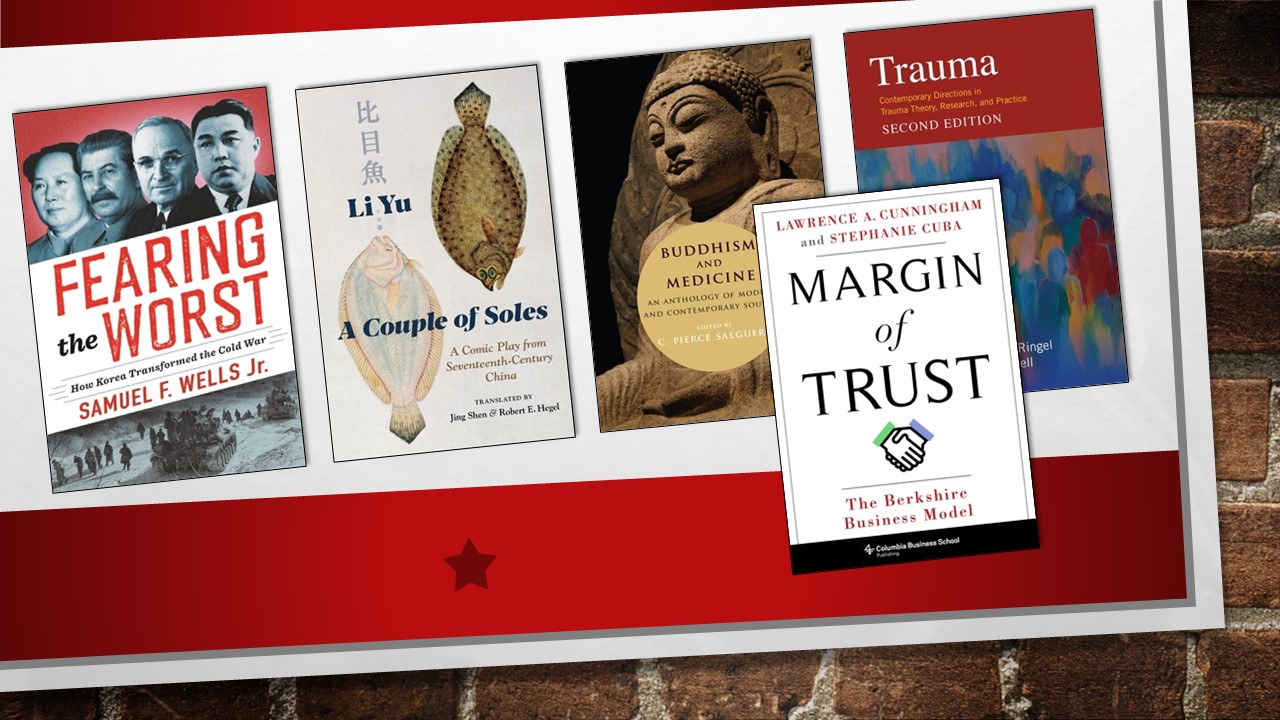Jing Shen and Robert E. Hegel on A Couple of Soles

“A Couple of Soles is an entertaining example of seventeenth century Chinese drama made quite accessible to English-reading audiences. Of both literary and historical interest, and offering quite enjoyable drama, comedy, and romance, it’s well worth a look.”
~Complete Review
Valentine’s Day is this Friday, and in the spirit of romance, we’re featuring works in literature and translation centered on love. In this piece, translators Jing Shen and Robert E. Hegel discuss the plot of A Couple of Soles: A Comic Play from Seventeenth-Century China, by Li Yu and how the opera provided both distraction and thought during the Ming-Qing dynastic transition. Make sure to enter our Valentine’s Day Book Giveaway for a chance to win a copy of this work.
• • • • • •
True love conquers all in some great romances, but in A Couple of Soles, love needs some help—actually a lot of help.
In this opera, tradition and rules force two lovers—drawn to each other by irrepressible passion—to keep a formal distance from each other! A filial daughter defies her mercenary mother in a fight over whom she can marry! The power of love is so intense that it drives a faithful young man to die if he must, in order to be with his beloved! Their devotion is so deep that even the gods are moved to intervene! Can the young couple survive these multiple challenges? Can this marriage ever be made? How will the river god preserve these lovers? Can a great romance survive when confronted with the traumas produced by ugly reality—by physical dangers that dwarf a young woman’s defiance of her mother? Exile, treachery, marauding bandits—in struggles for power, can true devotion survive?
“A filial daughter defies her mercenary mother in a fight over whom she can marry! The power of love is so intense that it drives a faithful young man to die if he must, in order to be with his beloved!”
These are the challenges faced by Tan Chuyu, a poor scholar, and Liu Miaogu, a beautiful young actress— the two central figures of this lengthy opera from seventeenth-century China. All ends well, in a sense, as do most other plays of this romantic chuanqi theatrical tradition. But this play is unusual. It was the product of an extraordinary writer, a creative genius who declared that everything he wrote was meant to provoke laughter. Despite its moments of tension, A Couple of Soles is a comic play, to be sure: The young couple’s miraculous rescue and their “rustic” wedding are among the greatest comic scenes in China’s theatrical tradition.
“Can one avoid betraying one’s principles when confronting tests after strenuous tests? Can love and friendship survive suspicion and pretense?”
However, the playwright Li Yu (1610-1680) wrote soon after a decade of rebellion, invasion, and widespread suffering caused as the Manchu forces established the new Qing dynasty. Laughing at the foibles of young lovers might distract his audiences momentarily, but dark and weighty questions hang over the play and the young couple at its center: is it defensible to depart from ethical standards in time of grave emergency, either personal or national? Can one avoid betraying one’s principles when confronting tests after strenuous tests? Can love and friendship survive suspicion and pretense? A Couple of Soles provides its audiences, and especially its readers, with amusement, serious moments for self-contemplation, and raucous adventure. The details might be specific to late seventeenth-century China, but its themes are perennial: the meaning of love and its place in the hearts and minds of people young and old is a topic ever new, and in Li Yu’s hands, it can be amusing and serious at the same time.
Explore more books in the Translations from the Asian Classics series and save 30% when you order from our website by using coupon code: CUP30 at checkout.








